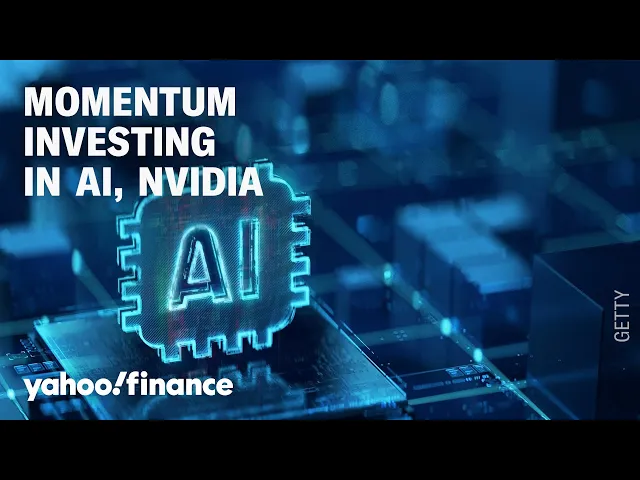Why the AI trade is always in question, analyst explains

AI remains Wall Street's toughest long-term bet
In the unfolding saga of artificial intelligence investments, Wall Street continues its complex relationship with AI stocks—alternating between breathless enthusiasm and sobering skepticism. The recent pullback in AI-related equities highlights a fundamental question that investors and analysts alike are grappling with: is the AI revolution truly sustainable as an investment thesis, or are we witnessing another tech bubble in the making? This tension between transformative potential and market reality creates one of today's most challenging investment landscapes.
Key Points
-
The market's perception of AI companies oscillates dramatically between viewing them as revolutionary businesses worthy of premium valuations and questioning whether the technology can deliver sustainable profits and growth.
-
Many AI companies currently trade at high multiples, forcing investors to make difficult judgment calls about whether these valuations reflect reasonable future earnings or speculative excess.
-
Wall Street analysts remain divided on AI's investment trajectory, with some seeing the current pullback as a healthy correction while others warn of fundamental disconnects between market expectations and business realities.
-
Despite volatility, institutional investors continue allocating significant capital to AI, suggesting underlying confidence in the sector's long-term transformative potential.
The Fundamental AI Investment Paradox
The most compelling insight from recent market movements is what I call the "AI investment paradox"—the stark contradiction between near-unanimous belief in AI's transformative potential and persistent uncertainty about how this transformation translates to sustainable business models. Unlike previous tech revolutions where monetization paths became relatively clear (digital advertising for social media, subscription models for SaaS), AI's value capture mechanisms remain surprisingly ambiguous for many companies.
This matters tremendously because we're witnessing unprecedented capital allocation decisions based on potential rather than proven results. The semiconductor industry alone has seen over $100 billion in new investment announcements this year, largely predicated on AI demand projections. For perspective, that exceeds the entire venture capital investment in AI startups during 2022. The scale of these bets means that even minor miscalculations in AI adoption timelines could trigger significant market corrections.
Beyond the Headline Numbers
What most market commentary misses is the bifurcation happening within the AI investment landscape. While attention focuses on high-profile names like Nvidia, Microsoft, and Google, a more nuanced picture emerges when
Recent Videos
How To Earn MONEY With Images (No Bullsh*t)
Smart earnings from your image collection In today's digital economy, passive income streams have become increasingly accessible to creators with various skill sets. A recent YouTube video cuts through the hype to explore legitimate ways photographers, designers, and even casual smartphone users can monetize their image collections. The strategies outlined don't rely on unrealistic promises or complicated schemes—instead, they focus on established marketplaces with proven revenue potential for image creators. Key Points Stock photography platforms like Shutterstock, Adobe Stock, and Getty Images remain viable income sources when you understand their specific requirements and optimize your submissions accordingly. Specialized marketplaces focusing...
Oct 3, 2025New SHAPE SHIFTING AI Robot Is Freaking People Out
Liquid robots will change everything In the quiet labs of Carnegie Mellon University, scientists have created something that feels plucked from science fiction—a magnetic slime robot that can transform between liquid and solid states, slipping through tight spaces before reassembling on the other side. This technology, showcased in a recent YouTube video, represents a significant leap beyond traditional robotics into a realm where machines mimic not just animal movements, but their fundamental physical properties. While the internet might be buzzing with dystopian concerns about "shape-shifting terminators," the reality offers far more promising applications that could revolutionize medicine, rescue operations, and...
Oct 3, 2025How To Do Homeless AI Tiktok Trend (Tiktok Homeless AI Tutorial)
AI homeless trend raises ethical concerns In an era where social media trends evolve faster than we can comprehend them, TikTok's "homeless AI" trend has sparked both creative engagement and serious ethical questions. The trend, which involves using AI to transform ordinary photos into images depicting homelessness, has rapidly gained traction across the platform, with creators eagerly jumping on board to showcase their digital transformations. While the technical process is relatively straightforward, the implications of digitally "becoming homeless" for entertainment deserve careful consideration. The video tutorial provides a step-by-step guide on creating these AI-generated images, explaining how users can transform...
